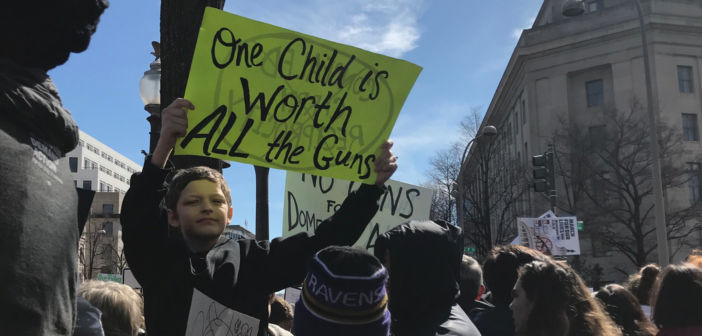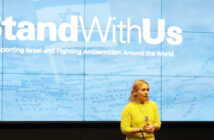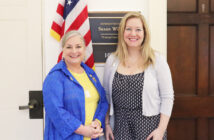For decades, young activists on college campuses have taken to protests to vocalize their opinions on national issues, such as about war, the environment, and sexual assault.
March for Our Lives and school walkouts are allowing high school and college students to voice their opinions after the shooting at Marjory Stoneman Douglas High School in Parkland, Florida. Some high school students have faced punishment for protesting, and on Feb. 23, Lehigh Admissions tweeted to prospective students addressing policies on peaceful protest.
If you're concerned about being penalized by Lehigh as a result of being suspended for your peaceful protest of gun violence, have no fear! We won't hold it against you.
— Lehigh Admissions (@lehighadmission) February 23, 2018
The tweet read, “If you’re concerned about being penalized by Lehigh as a result of being suspended for your peaceful protest of gun violence, have no fear! We won’t hold it against you.”
Bruce Bunnick, the interim vice provost of admissions and financial aid who drafted the tweet, said this statement was posted to follow other schools and universities across the country that were taking similar stances.
Bunnick said the goal was not to encourage students to engage in any belligerent behavior, but rather to assure them Lehigh would not hold the repercussions of their peaceful protesting against their applications.
“The statement itself did not attempt to make a political statement on either side of the issue behind gun violence,” he said. “That was not our intent.”
While protesting has taken place on a national level, students have also organized protests on Lehigh’s campus.
Throughout history, Lehigh students have protested in response to issues impacting the nation.
James McIntosh, a professor emeritus of sociology, remembers campus events during the peak of Vietnam War college protests. He said he participated in many rallies and protests on campus, in the Lehigh Valley and nationally.
McIntosh said the number of protests against the war increased when more Lehigh students were drafted.
According to The Brown and White archives from 1965, “Students, especially graduate students (were) finding themselves in the Selective Service hotseat as local draft boards (began) to tighten their requirements for student deferments.”
McIntosh said students became more concerned with the war because it began affecting people their own age. He also said one of the biggest rallies during this time took place in response to the Kent State Massacre in 1970.
“There was a march at night where people walked from the top of the mountain to the flagpole and everyone was holding candles,” McIntosh said. “I would say at least half of the campus was involved, because that really struck home: college kids getting killed by the National Guard.”
In 1969, The Brown and White reported that more than 100 students silently marched in a candlelight rally onto Bethlehem’s Civic Center Plaza to protest the Vietnam War. Students and faculty, including McIntosh, spoke about the anti-war movement.
McIntosh said it is important that students are rallying and speaking out about safer gun control legislation and becoming involved in political activism.
According to a 1965 article from The Brown and White, members of Lehigh’s civil rights group conducted a silent march through Bethlehem fighting for national civil rights — the first-ever demonstration ever held for civil rights in Bethlehem. The purpose of the march was to protest discrimination against African-Americans in Alabama and Mississippi.
David Silverstone, ’68, who attended the march, said in the article that the group’s goal was to receive legislative support for stronger national civil rights legislation. Students also advocated to send federal troops to Alabama and Mississippi to protect the discriminated.
Edward Morgan, an emeritus distinguished university professor of political science, taught a course on the social movements and legacies of the 1960s.
Morgan was an undergraduate student at Oberlin College during the time of the protests of the Vietnam War. He participated in peaceful protests against the war both on his campus as well as across the country.
Morgan said he notices a correlation between the protests he took part in when he was younger and the protests happening now in response to gun violence. He said he believes often times, young people are the foot soldiers of a protest movement because they are the people who have the energy and freedom to participate in a rally or protest.
“I think that the tweet from the admissions office was very appropriate, especially in this day and age when young people are rising up,” Morgan said.
Anthony DiMaggio, a political science professor, said through his two years here, he has come to view Lehigh as a socially active campus where its students have the freedom to express themselves.
“In realizing who you want to be, students have the freedom to explore their political beliefs and act on them, as long as they’re doing that in productive and non-violent ways,” DiMaggio said.
A rally on campus took place after a student egged and graffitied the UMOJA house in 2014. During this rally, the activist group From Beneath the Rug gathered more than a thousand members of the Lehigh and Bethlehem communities around the flagpole to support the victims of the UMOJA vandalism.
“The initiative is being taken by young people, and I can’t tell you how crucial I think that is,” Morgan said. “Participating in something like that typically will have an effect on your life — you will have much more of a tendency to be what I might call an ‘active citizen.’”






Comment policy
Comments posted to The Brown and White website are reviewed by a moderator before being approved. Incendiary speech or harassing language, including comments targeted at individuals, may be deemed unacceptable and not published. Spam and other soliciting will also be declined.
The Brown and White also reserves the right to not publish entirely anonymous comments.
2 Comments
Wow, believe it or not, a liberal university wants liberal students to go protest! What a ground breaking article!
I’m sorry, but Lehigh’s long had one of the more apathetic, blinkered campuses around. It’s actually notable for not getting involved. You really have to dig to find the people who led any kind of dissent or activism, and — from at least early 70s on, which is when I first got to know the campus – it’s been pretty stony soil for activism. Anything that managed to get born stayed small and died easily. I hope that things are changing now, but I can’t say that vibe’s coming through very strongly.
I remember Morgan, too, and yes, his student activism days made a strong impression on him. What made a less deep impression were the old gray legislators of the 60s and 70s who took advantage of the protest winds to put through progesssive legislation they’d long had ready to go: it was their practical political work that made things change. Ted’s protests made an opportunity, but did not do the work themselves. Lehigh does not and to my knowledge has never trained its students to become those legislators, fighting the trusts and monopolies and industrialists in order to preserve, in a practical manner, clean air, clean water, civil rights, labor rights, progressive concerns like these. On the contrary.